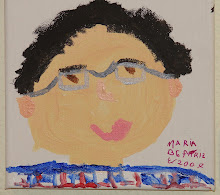Artigo completo aqui
As Portugal agrees to standardise its language - spoken by eight far-flung countries around the world - Hugh O'Shaughnessy muses on the benefits of knowing a little of the "lingua portuguesa". It was the nicest thing any stranger said to me that year. I had been in a small hotel in Luanda, the depressed and chaotic capital of Angola, for a week.
I was trying to make sense of a complicated country bursting with oil and paralysed by corruption.
On my last morning I told the waiter - who had been serving me breakfast and with whom I had always passed the time of day - that I was about to fly off.
He asked quietly: "O senhor e brasileiro, ne?" (You're Brazilian, aren't you?)
We had never had a long conversation, so he had not realised the enormous gaps in my Portuguese vocabulary and grammar.
But I did have enough of the language and enough of a Brazilian accent to have given him one clear impression, albeit a rather inaccurate one. I went off to the airport very contented.
Diamonds
Some 230m Portuguese speakers are spattered round the globe. Some live in former colonies with tiny populations: Cape Verde in the Atlantic, Sao Tome and Principe in the waters off Nigeria, and Timor in the Far East.
Angola and Mozambique in Southern Africa are a bit bigger than these but Portugal itself has little more than 10m inhabitants.
The bulk of Portuguese speakers - nearly 200m of them - live in South America.
Brazil was a colony of Portugal for centuries and it brought immense prosperity to the motherland.
In the 1730s, King John V in Lisbon ordered the Brazilians to stop sending him diamonds. The flood of gemstones was positively ruining the market. "Enough, enough, enough," he wailed piteously.
Unsurprisingly today, it is the Brazilians, long free of colonial shackles, who have got the weight in the Portuguese-speaking world.
Interviewing presidents
As the eight independent governments which form the Community of Portuguese-speaking Countries try to agree on rules for a more uniform language, it is the South Americans who are making themselves heard.
They have persuaded their European cousins to reform their spelling and adopt letters "k", "w" and "y" which Lisbon says do not exist in correct Portuguese. For their part, many in Portugal are baulking a little.
I am just glad I spent time at university learning a smattering of the language of a country which had always fascinated me. I soon found, for instance, that the Portuguese word "puxe" - pronounced "push" - means "pull".
Portuguese has brought dividends to me as a journalist. There would not have been that chat with Lula - a trade union leader in Sao Paulo then, leader of Brazil today - had I not had some notion of his language.
Then there was the time when we were working on a BBC documentary in Brasilia.
The word came down that President Itamar Franco - who, like Lula, had no English - would do an interview but only on condition it was in Portuguese.
"There you are," said the producer happily. I gulped several times and took a big shot of cachaca, or cane brandy, to steady the nerves and we marched into the presidential office.
In fact it could not have gone better. We left the president, thanking him profusely. "Obrigado", we said, "Obrigado".
Some notions of Portuguese are also, of course, a help in everyday situations in Brazil.
The biggest group of visitors come from Argentina and few Argentines bother trying to speak Portuguese.
So when a foreigner does make the attempt, that person starts off with a bonus point or two in Rio or Sao Paulo.
East Timor
But the time when Portuguese was most useful to me was in East Timor, the former Portuguese colony which had been invaded in 1975 by its giant neighbour Indonesia.
The Indonesians virtually outlawed the language and banned it in schools. The resistance fought back from Timor's jungle-covered mountains.
But despite years of occupation by massive numbers of Indonesian troops and colonists, the Timorese stuck to their language.
Consequently, if a Westerner even just greeted a Timorese with a "bom dia" (good day), he identified himself as a friend. Timorese eyes lit up at the sound of a "bom dia".
In Portuguese, Timorese guerrillas related horrible details of the Indonesians' terror tactics.
But I do have one big confession to make. I am happy to chat with Angolan waiters or Brazilian politicians or Timorese freedom fighters, but I am dead scared in Lisbon.
The Portuguese have the terrible practice of swallowing most of their consonants and some of their vowels, and that presents dreadful problems.
So I have just two words for the kind Portuguese from Lisbon to the Algarve who understand - or who at least say they understand - what I am trying to say in their language: "Muito obrigado!" (I am much obliged to you).
Subscribe to:
Post Comments (Atom)

No comments:
Post a Comment